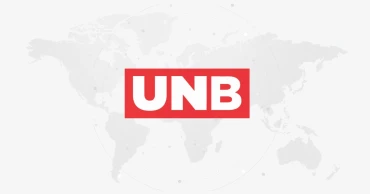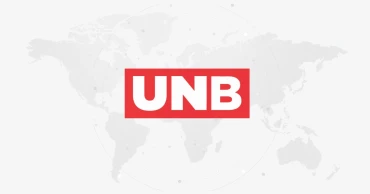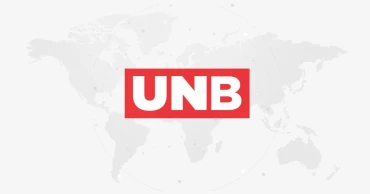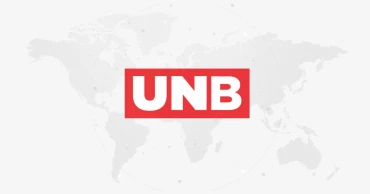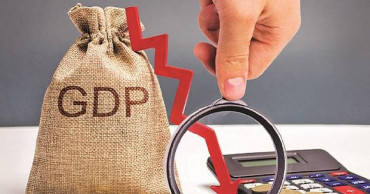fiscal year
Govt plans to curb operating expenditures amid economic challenges
The government has initiated measures to cut operating expenditures in the coming years, aiming to curb the rising trend witnessed in recent years due to various global and domestic challenges.
The operating expenditures are projected to account for 58.7% of public expenditure in the 2025-26 fiscal year and 58.4% in 2026-27, according to an official document from the Ministry of Finance.
The government has targeted operating expenditures at 59% of total public expenditure for the current fiscal year.
Operating expenditures include wages, salaries paid to the government employees, purchase of goods and services, subsidy and transfer payments, interest paid for domestic and foreign loans and expenditures on 'food account operation'.
According to the document, operating expenditures increased from 55.6% in FY19 to a peak of 62.6% in FY23, driven by the twin crises of the COVID-19 pandemic and the Russia-Ukraine war which required significant government spending.
Key drivers of increased spending
Interest payments have risen steadily, reflecting growing debt servicing obligations.
Subsidies and transfer payments have also expanded from 2.9% of public expenditure in FY19 to an estimated 4% in FY24, emphasising social welfare and economic stabilisation measures, said the document.
The operating expenditure, spanning from FY19 to FY23, maintained an average of 7.6 percent of GDP.
Read: Govt expenditure reduced by Tk 47,367 crore in revised budget of FY2023-24
With the revised budget for FY24, this figure has surged to 8.6 percent.
This marginal leap arises from the increase in domestic interest rates and the volatility of exchange rates in the global economy, which together elevate interest payment expenses.
Despite these challenges, the government anticipates stabilizing operating expenditure at 8.3% of GDP in the medium term, driven by strategic adjustments and fiscal discipline.
The food subsidy has increased by 14.1 % in FY24 compared to the previous FY23, which also contributes to this escalation.
Managing Salaries and Goods Expenditures
The share of salaries and allowances as a percentage of GDP decreased from 1.8% in FY19 to 1.4% in FY23, not due to salary cuts but reflecting broader economic growth.
The share of expenditures on pays and allowances is projected to be 1.5 percent of the GDP by FY25, still lower than the 1.8 percent of FY19.
The government is committed to optimising expenditure on pay and allowances while also ensuring efficient public service delivery, the document stated.
While the proportion of expenditures on salaries and allowances compared to the GDP has decreased from 1.8 percent in FY19 to 1.4 percent in FY23, this change is not due to a reduction in salary amounts.
Read more: CSOs demand public expenditure review commission
The share of expenditures on pays and allowances is projected to be 1.5 percent of the GDP by FY25, still lower than the 1.8 percent of FY19, reflecting a broader economic development rather than cuts in salaries.
The reallocation of resources to more pressing areas during the COVID-19 years and the austerity measures adopted since 2022 caused the expenditure on goods and services to fall from 7.3 percent in total expenditure in FY19 to 5.9 percent in FY23.
The revised estimates of FY24 show that expenditures on goods and services in FY24 were 6.1 percent of total expenditures.
The Finance Division has projected that expenditure on goods and services will remain around 6 percent in the medium-term.
Rationalising Subsidies and Strengthening Social Support
The government is pursuing a strategic approach to rationalise subsidy allocations, prioritizing livelihood support programs for vulnerable populations.
Subsidies for agriculture, energy, and power sectors remain a focus amid rising essential costs.
Energy subsidies are set for a gradual reduction, supported by systematic price adjustments and the implementation of formula-based fuel pricing mechanisms.
However, lingering subsidy arrears from previous fiscal years will require ongoing attention.
Promoting growth and sustainability
To drive economic growth, the government plans to provide fiscal incentives for export diversification, remittance growth, agricultural development, and the adoption of green technologies in the RMG sector.
Emphasis is also given on hybrid technologies, electric vehicles, and ICT service exports.
Special attention will continue to be given to agriculture and exports, which are regarded as the backbone of the country’s economy, said the document.
1 year ago
Govt plans big to boost national revenue in the next two fiscals: document
In its bid to boost the national revenue the interim government has set a target to collect Tk 6,15,500 crore and Tk 6,95,100 crore respectively for the next two fiscals.
In the next 2025-26 fiscal an amount of Tk 5,53, 300 crore will come from NBR which is 15.2 percent higher than the previous year.
Officials familiar with the plan said this week another Tk 62500 crore will come from other sources which is 5.5 percent higher than the previous year.
In the 2026-27 fiscal, Tk 6,31,100 crore, which is 14.1 percent higher, will be collected from NBR while Tk 64000 crore, which is 5.3 percent higher, will come from other sources.
The revenue target for the running 2024-25 fiscal is Tk 5,41,000 crore. Of which, Tk. 4,80,000 crore is supposed to come through the National Board of Revenue, and Tk. 61,000 crore from other sources.
The government has undertaken various reform measures to achieve its fiscal targets in the medium term (2026-27 fiscal), according to an official document of the finance ministry.
The revenue is expected to grow around 13 percent in the next three years, including the running one, to reach Tk 695,000 crore in FY27.
The NBR tax is estimated to grow by as high as 28.2 percent in FY24, which is then projected to grow by 17.1 percent in FY25, 15.2 percent in FY26, and finally 14.1 percent in FY27.
As per the document, there is no other option but to boost revenue collection and raise the tax-to-GDP ratio to the acceptable level in order to maintain Bangladesh's economic development.
The government is planning to bring in appropriate changes and reforms in tax policy and administration to make them both effective and simple in the medium term.
Several initiatives are underway to make tax administration taxpayer-friendly and transparent by expanding the scope of digitalisation and automation in tax registration, return submission, and tax payment.
Tax exemptions currently being provided in various areas will be scrutinised and rationalised.
Laws pertaining to customs and income tax have been updated and more amendments are in the offing in those laws to make those more taxpayers and business friendly.
A Medium and Long Term Revenue Strategy (MLTRS) is currently being developed by the National Board of Revenue that is expected to chart a pathway to enhance revenue collection over the next five years.
Along with the initiatives for reforms in the taxation system, the government has also paid its attention to explore the potential of revenue mobilisation from NTR sources. Various initiatives are being taken to make autonomous institutions pay part of their profit to the government.
Ministries/Departments are being sensitised and encouraged to update fees/rates in non-tax revenue sector, identify potential sources and generate revenue from these sources, the document said.
A database has already been created regarding fees/rates of government services provided by government agencies.
In addition to updating the fees/charges of various services provided by the government, it has introduced a digital payment system so that the public can avail themselves of numerous services from their doorsteps which will improve NTR collection in the medium term, the document says.
On ther other hand, to encourage hassle-free tax return submission the NBR has issued an order to make online filing of income tax return (e-Return) mandatory for government employees under the jurisdiction of income tax circles located in Dhaka North, Dhaka South, Gazipur and Narayanganj City Corporation.
Online filing of income tax returns has been made mandatory for working officers/employees for all scheduled banks, all mobile telecom service providers and some multinational companies namely Unilever Bangladesh Limited, British American Tobacco Bangladesh Company Limited, Marico Bangladesh Limited, Berger Paints Bangladesh Limited, Bata Shoe Company (Bangladesh) Limited, Nestlé Bangladesh Plc.
The NBR has taken a move to simplify submission income tax return and payment procedure through online.
Online return filing system has been opened for taxpayers since September 9. Individual taxpayers can easily prepare their returns and file them online using the National Board of Revenue website www.etaxnbr.gov.bd.
From this system, taxpayers can pay taxes through internet banking, card payment (debit/credit card) and mobile banking and get the facility of downloading and printing copies of filed returns, receipts, income tax certificates, TIN certificates. Besides, anyone can download and print the e-Return filed for the previous year.
The e-Return registration process has already been made more taxpayer friendly. Biometric SIM registered with own national identity card of respected taxpayer is required for successful registration in e-Return.
1 year ago
Big jump in import, Bangladesh witnesses highest ever $18.70 billion BOP deficit in FY22
The fiscal year 2021-22 ended with a record USD $18.70 billion deficit in the Balance of Payments (BOP) due to a big jump of imports, said Bangladesh Bank (BB) updated report released on Monday.
In the previous fiscal year (2020-21), this index was only $4.57 billion deficit in the balance of payment.
Never before such a large deficit has been seen in any financial year. Economic researchers believe that the important indicators of the economy have deteriorated due to the jump in imports.
Ahsan H Mansur, executive director of the Policy Research Institute (PRI), economist and a researcher, believes that this shortfall has emerged as a concern in the macroeconomy.
He told UNB, "Due to the abnormal increase in imports, this huge shortfall in foreign transactions has occurred. It is true that there is a positive side to increasing imports. Investment in the country increases; creating employment. There is momentum in the economy.”
Read: Bangladesh receives 2.09 billion remittance in July; highest in 14 months
But the balance of payments deficit of about $19 billion is really a matter of concern. Due to this shortage, instability or crisis has occurred in the foreign exchange market market, Mansur said.
He said, "The higher price of all kinds of things including fuel oil, food products in the world market is a reason for the increase in import cost.”
“Despite taking various initiatives from the government and Bangladesh Bank, the cost of imports cannot be controlled. Due to this increase in expenditure, inflation is also increasing. All in all, the crisis in the economy is increasing,” Mansur added.
In this situation, Mansur suggested the government and central bank take more strict measures to reduce imports.
According to the Central Bank data, the outgoing FY 22 started with a deficit in the current account balance. In the first three months July-September, this deficit amounted to $2.31 billion. At the end of four months (July-October) it increased to $4.77 billion. In this way, the balance of payment deficit has increased every month along with the increase in import expenditure.
3 years ago
Bangladesh receives record $2.09 billion remittance in April
Bangladesh has received USD $2.09 billion in remittances in April, the highest amount in a single month of the current fiscal year.
Bangladesh Bank (BB) published the updated information on Thursday (May5).
Also read: Remittance inflow rises ahead of Eid
According to the sector insiders, expatriates usually send more remittances to the country on the occasion of Eid festival.
In its continuation, the flow of remittances has increased since the beginning of Ramadan.
Besides, the government is now giving 2.5 percent incentive on remitances.
Also read: Remittance income increasing from USA, EU
According to the BB, five state-owned commercial banks received $354.89 million in April, private commercial banks received remittance of $1612.74 million, foreign banks$7.35 and two specialized banks $34.51 million.
Bangladesh received $1.85 billion in remittances in March of fiscal year 2021-22.
3 years ago
Parliament gets Tk 336.14cr budget for next fiscal year
The Parliament Secretariat Commission on Sunday approved a Tk 336.14 crore budget for Parliament to spend on its development and non-development expenditures for the next fiscal year (2020-21).
The approval was given at the 32nd meeting of the Commission held at the Jatiya Sangsad Bhaban with Speaker Dr Shirin Sharmin Chaudhury in the chair.
The budget is 7.12 percent or Tk 22.34 crore higher than that of the outgoing fiscal year of 2020-21, said a Parliament Secretariat handout.
The revised budget for the Parliament Secretariat in the previous fiscal was Tk 313.79 crore.
The meeting also approved the estimated budget for the 2022-23 fiscal year Tk 359.67 crore and Tk 384.85 crore for 2023-24 fiscal.
Commission Members Prime Minister and Leader of the House Sheikh Hasina, Finance Minister AHM Mustafa Kamal, Law, Justice, Parliamentary Affairs Minister Anisul Huq and Deputy Opposition Leader GM Quader, on behalf of the Opposition Leader, attend the meeting. Chief Whip Noor-e-Alam Chowdhury attended the meeting on special invitation.
In the beginning of the meeting, it discussed the implementation progress of the decisions taken at the 31st Commission meeting.
Parliament Secretariat's Senior Secretary Dr Zafar Ahmed Khan placed the agenda of the meeting, while Finance Division Secretary Abdur Rouf Talukder and Housing and Public Works Secretary Md Shahid Ullah Khandaker and the high officials concerned were present.
4 years ago
Tk6 trillion budget in the works for 2021-22; govt eyes increased outlay on capital expenditure
The government allocation for public expenditure on goods and services will witness a significant rise in the coming years after a slight dip in the last couple of years.
The government has estimated to spend Tk 401.3 billion, which is 6.6% of the budget, for public expenditure in the coming 2021-22 fiscal.
The country is likely to get Tk 5933.14 billion budget for 2021-22 fiscal, Tk 253.14 billion higher than the running one, aiming to face the COVID-19 pandemic challenge for recovering the economy.
Read BSMMU announces Tk 602.73cr budget for FY 2020-21
The estimation for 2022-23 fiscal has been set at Tk 465.2 billion, which will be 6.7% of the budget.
According to an official document, the allocation for the purpose in the running 2020-21 fiscal is Tk 350 billion or 6.1% of the budget.
The document also reads that the government has estimated to bring down its expenditure in current account, including purchase of product and service, while increase the capital expenditure in the next two fiscals.
It said that the current expenditure for 2021-22 and 2022-23 fiscal has been estimated at 54.4% and 54.5% of the total budget respectively.
Also read: Spending on public servants' remuneration to witness uptick from next fiscal
As per the document, the government allocation for expenditure can be divided in current expenditure and capital expenditure.
Salaries and allowances of government employees, purchase of product and service, compensation and relocation expenses, payment of interest against foreign and domestic loans - these are all found under the current expenditure category. Besides, ‘food accounts’ and ‘expense for structural coordination’ are also under this expenditure.
On the other hand, capital expenditure is spending that leads to the creation of new productive assets and inclusion. It is akin to investment, so government-funded projects and project components in the annual development programme (ADP), as well as non-ADP capital expenditure are the two main categories for capital expenditure.
Also read: Stop unnecessary expenditure of public money: PM
Besides, loans and advance payments, development programmes from revenue budget, projects outside the ADP and non-ADP Food for Work programme and handover expenses fall under this expenditure.
The document stated that in the revised budget for the 2019-20 fiscal, the allocation for public expenditure on products and services was Tk 322.1 billion, that is 6.5% of the budget.
It also mentioned that in 2018-19 fiscal the allocation was Tk 285.7 billion which was 7.3% of the budget that year.
In four previous fiscals i.e. 2017-18, 2016-17, 2015-16 and 2014-15 respectively, the allocations were Tk 234.8 billion (7.3% of budget), Tk 205.49 billion (7.6%), Tk 182.05 billion (7.6%) and Tk 166.27 billion (8%).
Read 'Unimplementable' budget to cause public sufferings: BNP
The document said that from 2014-15 fiscal to 2018-19 fiscal the allocation for public expenditure in product and service was near about 8%.
Due to various government steps, like enhancement of transparency through introducing E-GP, development in public procurement management and others, the allocation for this sector can be delineated in the government budget process, the document said.
Meanwhile, amid the Coronavirus crisis, the government is working according to what it believes to be 'a comprehensive plan' with four main strategies.
The 4-pronged strategy entails discouraging luxury expenditures, prioritising government spending that creates jobs, creating loan facilities through commercial banks at subsidised interest rates for the affected industries and businesses, and finally expanding the coverage of the government’s social safety net programmes.
Read Govt aims to rein in budget deficit back within 5% from next fiscal
4 years ago
Spending on public servants' remuneration to witness uptick from next fiscal
The allocation of money for salaries and allowances of the public sector will see an uptrend from the next fiscal after a span of four years.
The government is going to allocate some 12.2% of the total budget in the upcoming fiscal of 2021-22 for salaries and allowances to the public servants and other related pockets.
The allocation of this sector will be 12.5% in 2022-23 fiscal of the total budget, according to an official document.
Read BSMMU announces Tk 602.73cr budget for FY 2020-21
The estimated amount of money for the next two fiscals would be Tk 745.3 billion and Tk 869.8 billion respectively.
After the 2016-17 fiscal, the amount of spending in salaries and allowances for the public servants, as a proportion of the budget witnessed a downward slide.
In 2016-17 fiscal the allocation was 18.2% while it nosedived to 14.8% in 2017-18 fiscal.
The allocated amount for the 2016-17 fiscal was Tk 490.43 billion whereas the allocation reduced to Tk 478.5 billion in the following fiscal.
As per the document, the allocation in 2013-14 fiscal was Tk 263.94 billion (14%) and Tk 288.20 billion (14.8%) in 2014-15.
Also read: When govt allowances kick in at 90!
The allocation saw a sharp rise in 2015-16 and 2016-17 fiscals with 16.7% and 18.2% of the total budget allocation. The amounts during these two fiscals for the salaries and other allowances were Tk 400.50 billion and Tk 490.43 billion.
The document said that the rise in the allocation occurred due to implementation of the new pay scale for the public servants that continued for the two consecutive fiscals.
The expenditure in the sector reduced to 14.8% (Tk 478.5 billion) of the budget in 2017-18 fiscal and 13.6% (Tk 534 billion) in 2018-19 fiscal.
The trend continued in 2019-20 fiscal with 12.2% and in 2020-21 fiscal with 11.6%.
The allocation for the fiscals were Tk 607.5 billion and Tk 650 billion respectively.
Also read: All senior citizens to receive old-age allowance by 2025: Minister
The official document expected that the trend of expenditure for the salaries and allowances in the coming two fiscals would be in the normal trend with 12.2% and 12.5% allocation of the total budget.
The country is likely to get Tk 5933.14 billion budget for 2021-22 fiscal, Tk 253.14 billion higher than the running one, aiming to face the COVID-19 pandemic challenge for recovering the economy.
Amid the coronavirus crisis, the government had taken up a comprehensive plan with four main strategies.
These are: discouraging luxury expenditures, prioritising government spending that creates jobs, creating loan facilities through commercial banks at subsidised interest rate for the affected industries and businesses, and expanding the coverage of the government’s social safety net programmes.
Read Budget: Prices of tobacco products up, gold down
Meanwhile, the government has estimated to bring down its expenditure in current account while increasing the capital expenditure in the next 2021-22 and 2022-23 fiscals.
According to an official document, the current expenditure for 2021-22 and 2022-23 fiscal has been estimated at 54.4% and 54.5% of the total budget respectively.
Salaries and allowances of public servants, purchase of product and service, compensation and relocation expenses, payment of interest against foreign and domestic loans are under the segment of current expenditure. Besides, ‘food accounts’ and ‘expense for structural coordination’ are also under this expenditure.
Also read 5pc increment for non-govt edu teachers, employees announced
On the other hand, government funded annual development programme (ADP) and non-ADP capital expenditure are the main two items under the capital expenditure. Besides, loan and advance, development programmes from revenue budget, projects outside the ADP and non-ADP food for work programme and handover expenses are also under this expenditure.
4 years ago
ADB trims India's growth forecast to 5.1 pct in current fiscal year
The Asian Development Bank (ADB) has cut India's growth forecast from 6.5 percent to 5.1 percent for the current financial year (April 2019-March 2020), according to its official release.
6 years ago


